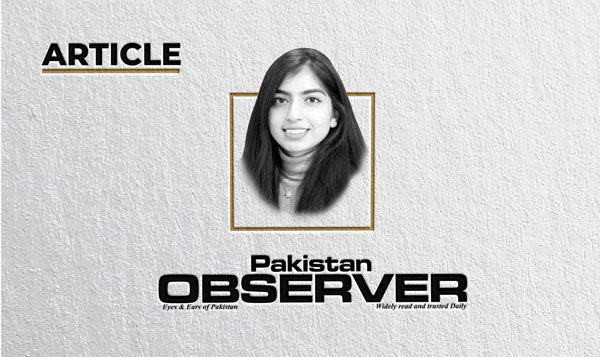Political polarisation in Pakistan: A zero-sum situation
PAKISTAN has witnessed wide range of security and economic challenges, mainly due to lack of co-operation between political parties and blame game. Political paralysis has intensified economic pressures of unimaginable proportions. The political leaders have opted for confrontational politicking on the streets instead of diplomatic means to implement successful parliamentary democracy.
Contextual understanding: Politics is a world of possibilities but the recent wave of extreme polarization after vote of no confidence has sparked many heated developments in Pakistan. The country was visibly divided into two factions; supporting either PTI or PDM. Nevertheless, Pakistan’s politics has seen active conflict between government and opposition in the past too, with equal efforts to ridicule each other. There have been rare moments of cooperation between the past governments and oppositions, for instance, 18th Amendment. Also, the state’s stability has been called into question by religious extremism, foreign-funded proxy warfare, inter-provincial conflicts, and questions over its foreign policy.
The digital age: The political divide, populism and polarization in the country have set aside the moral values to carry out the agenda for vested interests. Political polarization has intensified due to algorithms; an individual is exposed to the kind of information he is interested to consume. The mistrust among various groups in the age of misinformation has worsened the situation. Amid the abusive hurls on social media platforms against one-another, masses have forsaken the basic ethics.
Supporters of particular political ideals have been spreading fallacious news and propaganda against the political opponents, which makes their anger evident. US President expressed his concern recently and voices were also heard in the Indian Parliament about the reverse effects of social media on governance. It cannot be denied that constructive criticism, rational voices, concerns and reservations do result in a positive outcomes in political decisions. But the meaningless arguments, propaganda and deliberate attempts to defame each other flare the worst situation instead of reforming.
The easiest way to breach a nation is to breach its thinking pattern by creating doubts because real defence lies in the resilience with which people confront any situation. The enigma of our enemy is similar; we are strong enough to defend but poor enough to feed. Hence public opinion-making is the tool used by foreign forces to cause unrest in the society. The complex nature of the challenges posed by cyber warfare makes it impossible for a single political party to deal with. Divisive politics prevents sustained focus on evolving consensus for resolution of problems. Political leaders need to transcend partisan interests and forge agreement on the core national issues, even when their political competition continues.
Government vs Opposition: Prime Minister Shehbaz Sharif called for an All-Parties Conference (APC) due to the country’s intensifying challenges but even this failed to lower the political temperature as PTI refused to cooperate and attend the conference. It is safe to assume that the country’s multiple crisis have not persuaded political leaders to pause the political war. If the political leaders do not show willingness to solve the multiple crisis faced by Pakistan, it will further worsen the chaos.
The government has failed to engage with the opposition in a constructive manner and opposition has sought to destabilize the government. The dissolution of the Punjab and Khyber Pakhtunkhwa assemblies opened another chapter in the fierce political confrontation between the government and opposition. The opposition leader, Imran Khan, hoped this would force the PDM government to call early general election. While the ruling alliance insists that national polls would only be held once Parliament completes its full term in August, the constitutional obligation of holding elections to provincial assemblies in the stipulated 90-day period. The Election Commission of Pakistan (ECP) proposed dates between April 9 and 13 and ECP has also suggested between April 15 and 17 for the KP election.
A highly disoriented and emotionally charged youth has become a challenge to the national integration. Anti-nationalist, ethnically factionalized and politically manipulated masses were visible in September last year, even the tragic helicopter crash in Balochistan resulted in deplorable social media campaign against the military. The time is ripe to overcome misunderstandings and counter anti-state propaganda war to emerge victorious.
Need for political consensus: The current political turmoil, ceaseless power struggles and frequent appeals to courts to settle political disputes are all taking place at a time when the country is faced with serious challenges to its financial solvency and security shows a disconnect from reality by the opposing parties. The unwillingness of political elite to engage with their opposition diplomatically has led to a classic zero-sum game situation. Political consensus is the only option to attain economic sustainability. Political inclusion and tolerance has to be adopted properly to address the rising polarization and improve democratic governance in Pakistan. Inclusive policies are need of the moment to eliminate the feeling of marginalization and regain trust. The ruling class must ensure accountability and transparency.
Email: [email protected]









